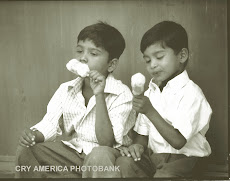शिरीष खरे
‘स्कूल चले हम’ कहते वक्त अलग-अलग स्कूलों में पल रही गैरबराबरी पर हमारा ध्यान ही
नहीं जाता. एक ओर जहां क, ख, ग लिखने के लिए ब्लैकबोर्ड तक नही पहुंचे हैं, वहीं
दूसरी तरफ चंद बच्चे प्राइवेट स्कूलों में मंहगी ईमारत, अंग्रेजी माध्यम और शिक्षा
की जरूरी व्यवस्थाओं का फायदा उठा रहे हैं.
केन्द्रीय कर्मचारियों के बच्चों के लिए केन्द्रीय विद्यालय हैं, सैनिको के बच्चों
के लिए सैनिक स्कूल हैं, तो गांव में मेरिट लिस्ट के बच्चों के लिए नवोदय स्कूल
हैं. लेकिन पिछड़े परिवारों के बच्चों की एक बड़ी संख्या सरकारी स्कूलों में पढ़ाई
करती है. जाहिर है, सभी के लिए शिक्षा कई परतों में बंट चुकी है. निजीकरण के
समानांतर यह बंटवारा भी उसी गति से फल-फूल रहा है.
भारत में 6 से 14 साल तक के सभी बच्चों के लिए मुफ्त और अनिवार्य शिक्षा कानून भले
ही लागू हो चुका हो लेकिन 60 प्रतिशत बच्चे प्राथमिक शिक्षा से वंचित हैं. हकीकत
में पांचवी तक पहुंचने वाले अधिकतर बच्चे भी दो-चार वाक्य लिख पाएं, ऐसा जरूरी नहीं
है. शिक्षा रोजगार से जुड़ा मसला है, इसलिए बड़े होकर बहुत से बच्चे आजीविका की
पंक्ति में सबसे पीछे खड़े मिलते हैं.
इसके उलट दुनिया के अमीर देशों मसलन अमरीका या इंग्लैण्ड में सरकारी स्कूल ही
बेहतरीन शिक्षा व्यवस्था की नींव माने जाते हैं. वहां की शिक्षा व्यवस्था पर आम
जनता का शिकंजा होता है. इसके ठीक विपरीत पिछड़े देशों में प्राइवेट स्कूलों की
शिक्षा पर लोग ज्यादा भरोसा कर रहे हैं. इसी धारणा का फायदा प्राइवेट स्कूल के
प्रंबधन से जुड़े लोग उठा रहे हैं, जो मनमाने तरीके से स्कूल की फीस बढ़ाते जा रहे
हैं. हमारे देश में भी ऐसा ही चल रहा है.
कई शिक्षाविदों का मानना है कि पूरे देश के हर हिस्से में शिक्षा का एक जैसा ढांचा,
एक जैसा पाठयक्रम, एक जैसी योजना और एक जैसी नियमावली बनायी जाए. इससे मापदंड, नीति
और सुविधाओं में होने वाले भेदभाव बंद होंगे. शिक्षा के दायरे से सभी परतों को
मिटाकर एक ही परत बनाई जाए. इससे हर बच्चे को अपनी भागीदारी निभाने का एक समान मौका
मिलेगा.
महज शिक्षा में ही समानता की बात करना ठीक नहीं होगा बल्कि इस व्यवस्था को व्यापक अर्थ में देखने की जरूरत है.
|
कोठारी आयोग (1964-66) देश का ऐसा पहला शिक्षा आयोग था जिसने अपनी रिपार्ट में सामाजिक बदलावों के मद्देनजर कुछ ठोस सुझाव दिए थे. आयोग के मुताबिक समान स्कूल के नियम पर ही एक ऐसी राष्ट्रीय व्यवस्था तैयार हो सकेगी जहां सभी तबके के बच्चे एक साथ पढ़ेंगे. अगर ऐसा नहीं हुआ तो समाज के ताकतवर लोग सरकारी स्कूल से भागकर प्राइवेट स्कूलों का रुख करेंगे और पूरी प्रणाली ही छिन्न-भिन्न हो जाएगी. 1970 के बाद से सरकारी स्कूलों की गुणवत्ता में तेजी से गिरावट आने लगी. आज स्थिति यह है कि ऐसे स्कूल गरीबो के लिए समझे जाते हैं.
कोठारी आयोग द्वारा जारी सिफारिशो के बाद संसद 1968, 1986 और 1992 की शिक्षा नीतियों में समान स्कूल व्यवस्था का उल्लेख तो करती है लेकिन इसे लागू नहीं करती है. दूसरी तरफ सरकार की विभिन्न योजनाओ के अर्थ भी भिन्न-भिन्न हैं, जैसे कि कुछ योजनाएं शिक्षा के लिए चल रही हैं तो कुछ महज साक्षरता को बढ़ाने के लिए. इसके बदले सरकार क्यों नहीं एक ऐसे स्कूल की योजना बनाती जो सामाजिक और आर्थिक हैसियत के अंतरों का लिहाज किए बिना सभी बच्चों के लिए खुला रहे. फिर वह चाहे कलेक्टर या मंत्री का बच्चा हो या चपरासी का हो. सब साथ-साथ पढ़े और फिर देखें कौन कितना होशियार है.
असल में समान स्कूल व्यवस्था एक ऐसे स्कूल की अवधारणा है, जो योग्यता के आधार पर ही शिक्षा हासिल करना सिखाती है. आम बोलचाल में कहें तो इसकी राह में न दौलत का सहारा है और न शोहरत का. इसमें न टयूशन के लिए कोई फीस होगी और न ही किसी प्रलोभन के लिए स्थान. लेकिन सवाल फिर भी आएगा कि जो भेदभाव स्कूल की चारदीवारियों में हैं, वही तो समाज में मौजूद है. इसलिए समाज के उन छिपे हुए कारणों को पकड़ना होगा जो स्कूल के दरवाजों से घुसते हुए ऊंच-नीच की भावना बढ़ाते हैं. यह भावना भी एक समान स्कूल व्यवस्था की अवधारणा की राह में बड़ी बाधा है. इसलिए महज शिक्षा में ही समानता की बात करना ठीक नहीं होगा बल्कि इस व्यवस्था को व्यापक अर्थ में देखने की जरूरत है.
गोपालकृष्ण गोखले ने 1911 में नि:शुल्क और अनिवार्य प्राथमिक शिक्षा का जो विधेयक पेश किया था, उसे उस समय की सांमती ताकतों ने पारित नहीं होने दिया था. इसके पहले भी महात्मा ज्योतिराव फुले ने अंग्रेजों द्वारा बनाये गए भारतीय शिक्षा आयोग (1882) को दिए अपने ज्ञापन में कहा था कि "सरकार का अधिकांश राजस्व तो मेहनत करने वाले मजदूरों से आता है लेकिन इसके बदले दी जाने वाली शिक्षा का पूरा फायदा तो अमीर लोग उठाते हैं." आज देश को आजाद हुए 62 साल से अधिक हो गए और उनके द्वारा कही इस बात को 128 साल. लेकिन स्थिति जस की तस है.
निजीकरण के कारण पूरे देश में एक साथ एक समान स्कूल प्रणाली लागू करना मुश्किल होता जा रहा है. इसके सामानांतर यह और भी जरूरी होता जा रहा है कि एक जन कल्याणकारी राज्य में शिक्षा के हक को बहाल करने के लिए मौजूदा परिस्थितियो के खिलाफ अपनी आवाज बढ़ायी जाए. इस नजरिए से शिक्षा के अधिकारों के लिए चलाया जा रहा राष्ट्रीय आंदोलन एक बेहतर मंच साबित हो सकता है. इसके तहत राजनैतिक दलों को यह एहसास दिलाये जाने की जरुरत है कि समान स्कूल व्यवस्था अपनाना कितनी जरूरी है और शिक्षा के मौलिक हकों को लागू करने के लिए यही एकमात्र विकल्प बचा है.






